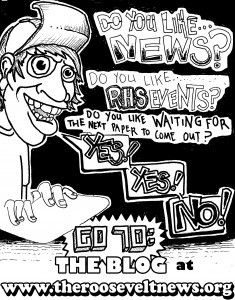High school newspaper sued by landlord

Across the street from Roosevelt High School in Seattle, Washington are apartments owned by Hugh and Martha Sisley. An article in The Roosevelt News, a student newspaper, reported that the owners had been “accused of racist renting practices” and referred to the apartments as the “Sisley slums.”
The Sisleys sued the school district claiming they had been libeled and defamed by the story. Libel is the publication of false statements that harm another’s reputation. Defamation is defined as a false written or oral statement communicated to a third party that injures one’s reputation. A defense to a claim of libel or defamation is the truth. There are other defenses including consent, statements made in good faith, opinion and fair comment on a matter of public interest.
In July, 2011, the trial court dismissed the Sisley case because the school district was not liable for allegedly false statements by students writing for the school newspaper. The court also ruled that the facts of the case did not support a claim of defamation as defined under Washington state law.
According to the Sisley’s attorney, Jeffrey Gray, the decision will be appealed to the Washington Court of Appeals. Gray commented that “It certainly seemed to us that the school would be responsible for this school-sponsored activity . . .if it’s trying to teach students how to be journalists, there’s a responsibility to make sure the information is accurate.” Update: In July, 2012, the appellate court affirmed the lower court’s decision for the school district stating that the Sisley’s failed to sufficiently prove that the story was false. The Sisleys may appeal to the state supreme court.
This case raises the issue regarding censorship of student expression. School sponsored activities including yearbook, plays and newspapers have undergone judicial scrutiny with mixed decisions from state and federal courts. The landmark decision from the U.S. Supreme Court in 1988 is the case of Hazelwood v. Kuhlmeier. The Court upheld a school’s decision to remove two articles about teen pregnancy and the impact of divorce on students. In its decision, the Court stated that “Educators do not offend the First Amendment by exercising editorial control over the style and content of student speech in school-sponsored expressive activities so long as their actions are reasonably related to . . . . .a . . .valid educational purpose.”
For more information, cases and discussion about student speech and journalism, see the Student Press Law Center.




If the publishers of the high school newspaper are going to make allegations of racism against the landlord, then the publishers had better have some evidence to support their allegations.
Allegations of racist renting practices can damage the bottom line for the landlord which in turn gives him the right to sue the publishers for ilbel and defamation in order to recover lost profits.
Truth, however, is a defense to charges of libel or defamation. So, you’re correct in stating that the authors of the article need solid evidence in support of their claims.